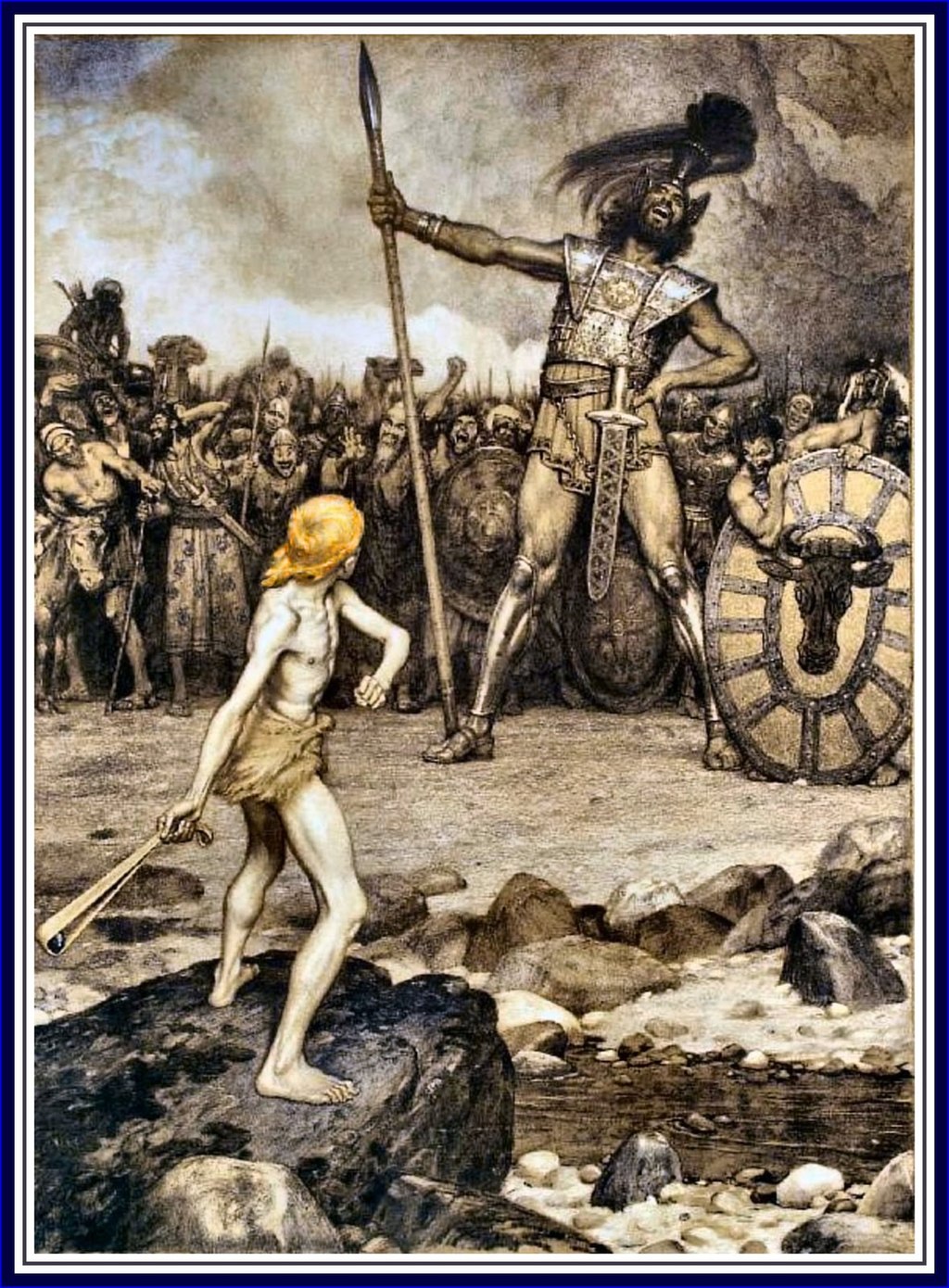Joseph was God’s ‘sleeping’ partner, literally. Moses had the burning bush and Saul, the road to Damascus. But for the poor carpenter, no such moments of engagement. God only visited him in his sleep. Heaven made a habit of invading moments of his life that nature had ordained to peace and recuperation, to bring upon him tidings of confusion and anxiety. The Psalmist had told him he had a God-given right to a good snooze [1]Psalm 127:2 but over and again, all he got were rude awakenings.

The first visitation was to instruct him to father a child that was not his’. [2]Matthew 1:18-21 And the second visitation was to totally disrupt his life. He was asked to leave the comfort of his home and security of his livelihood to become a refugee in a foreign land, in order that the child might be saved from those who sought to kill him. Could one simply shake-off such nightmares and return to a peaceful sleep? Unlikely. Well, Joseph did not sleep on it. He did as he was told. In the dead of the night he stole away to Egypt – wife and adopted son in tow.
God couldn’t simply abandon his vision nor the place of man in it. God was going somewhere, and humans were his vehicle.
Joseph was also God’s ‘silent’ partner. For one on whose shoulders God anchored His salvation vision, Joseph did not say a single word in scripture – not to his wife, not to his adopted son, and not to God. He did not instigate a debate with God on the ‘how’ and the ‘why’ of the burden that God placed on him on each of the nocturnal visitations. As his life was abruptly and completely disrupted, he uttered not a word, he resisted not in the slightest. He heard, he did, he stayed silent.
In his silence, Joseph put to action a Hebrew word for which there is no English equivalent: ‘Shema’ (שָׁמַ). It is generally translated as ‘obedience’ or ‘hear’ in our Bible, but those words do not capture the spirit of Joseph’s response to the Holy Spirit. Joseph did not obey in the sense of a ‘compliance with an order, request or law, or submission to another’s authority’ – though on the face of it, it appeared that’s what he did. His response is rooted in Moses’ foremost commandment to his people – the Shema.
“Hear (shema) O Israel: The Lord our God, the Lord is one. You shall love the Lord your God with all your heart and with all your soul and with all your might.” [3]Deuteronomy 6:4
A call to love in this sense is an exhortation to willingly yoke one’s self to another, and commit to meeting heads on, the demands and challenges of the other’s life with every fibre of one’s being. Jesus Christ gave a similar exhortation to his disciples saying, “If a man loves me, he will keep my words”. [4]John 14:23
This exhortation is for good reason. Moses introduced the Shema rather late in the day – in Deuteronomy, his last biblical book. Before then a stick [5]Exodus 15:26 or carrot [6]Leviticus 10:1-3 approach was applied to enforce faithfulness in Exodus and Leviticus. If you did this, you got that. It didn’t work. But God couldn’t simply abandon his vision nor the place of man in it. God was going somewhere, and humans were his vehicle. Allow me to flesh this out a little.
Moses harped on the importance of emotional connection between covenant partners. He taught that ‘loving’, ‘hearing’ and ‘doing’ are braided into a common spiritual fabric.
From Genesis, man was the fulcrum of God’s creative activity. Creation remained in incubation until God created Adam to manage all that God would birth. [7]Genesis 2:5 But Adam was no mere journeyman. He was invested with dominion and authority, and God treated Adam’s office with deference. [8]Genesis 2:19 A partnership developed between creator and manager that required integrity, [9]Job 2:3 trust, [10]Proverb 3:5-6 faithfulness, [11]Numbers 12:6-8 and a heart that hears. [12]1Kings 3:9 God always sought people with such attributes throughout biblical history.
Noah was needed to preserve and replenish the earth. Abraham was needed to bring God’s blessing to the whole world and Joseph was needed to nurture and protect the arm of God’s salvation for the world. Although none of these men led a mega church, they were involved in projects that would change the world eternally. It was necessary therefore for God to seek folks who wouldn’t take themselves and their lives too seriously. The bigger the script, the more committed, self-sacrificing and willing the partner needed to be. Any slip-ups would take a millennium to fix.
Imagine if Joseph had waivered, doubted, prevaricated, made excuses, sought allowances, bought time, asked questions, employed logic, ‘discerned’ spirits, asked for a sign? What if whatever God was brewing was not his cup of tea and Jesus was not his cross to bear? What if Mary was no longer the woman he wanted for his life? What if he murmured: “What about me!”? With Herod snarling at the infant Jesus, what would happen to the salvation story?
In the ancient near east, partnerships were built on covenants. It was a culture folks understood. Breaking covenants cost much. Keeping covenants was profitable. In bringing Israel into the Sinaitic covenant, God was speaking a language with which the people were familiar. [13]Exodus 19:5-6 However, 40 years after striking the covenant, Moses realised it did not work. The people failed at every turn. The threat of punishment did not make the Israelites into faithful partners. Often enough, they considered turning their backs on the promises of the covenant by lusting after the memory of Egypt. [14]Numbers 11:4-5 They felt no connection to the God who had done so much to deliver them. It was a ‘yeah’ and ‘amen’ relationship.
God chose to approach Joseph while the latter slept because God needed a heart that heard. It takes the Shema to make one God’s sleeping partner.
In his farewell message, Moses added a new spice to the brew. He started harping on the importance of emotional connection between covenant partners. Moses was at pains to teach that ‘loving’, ‘hearing’ and ‘doing’ are braided into a common spiritual fabric. He returned to the theme of the shema in his valedictory address in Deuteronomy 30:20:
“That thou mayest love the Lord thy God, and that thou mayest obey his voice, and that thou mayest cleave unto him: for he is thy life, and the length of thy days”
According to the Lord Jesus Christ, the shema is the greatest commandment. [15]Mark 12:28-30 He taught that what was required for this partnership is not just commitment, altruism or willingness. There needed to be an emotional connection between the partners. During his post-resurrection conversation with Peter, Jesus Christ committed to Peter the care of his flock in a three-fold command [16]John 21:15-17. In framing the commandment, he seemed mindful of the self-sacrificing nature of the calling upon Peter and what was necessary to succeed.
“So when they had dined, Jesus saith to Simon Peter, Simon, son of Jonas, lovest thou me more than these? He saith unto him, Yea, Lord; thou knowest that I love thee. He saith unto him, Feed my lambs.
“He saith to him again the second time, Simon, son of Jonas, lovest thou me? He saith unto him, Yea, Lord; thou knowest that I love thee. He saith unto him, Feed my sheep.
“He saith unto him the third time, Simon, son of Jonas, lovest thou me? Peter was grieved because he said unto him the third time, Lovest thou me? And he said unto him, Lord, thou knowest all things; thou knowest that I love thee. Jesus saith unto him, Feed my sheep.”
Before this conversation Peter had demonstrated that he ‘loved these’ more than Christ when he thrice denied Christ to save his own skin. But in confirming Peter’s calling, despite Peter’s failure of nerves, Christ demonstrated the sort of love he was asking of Peter, and all that he would call into partnership with himself.
God chose to approach Joseph while the latter slept because God needed a heart that heard. It takes the Shema to make one God’s sleeping partner. As seen in Noah, Abraham and Joseph, partnership with God is not a preserve of leaders of big congregations. These men were called to action within their own families, [17]Genesis 18:19 to relate to spouses and children and lead their families with the words and love of God coursing through their hearts. The stuff that God achieved in partnership with these men several thousand years ago continue to impact the world positively today. They heard, they did, they stayed silent.
References


